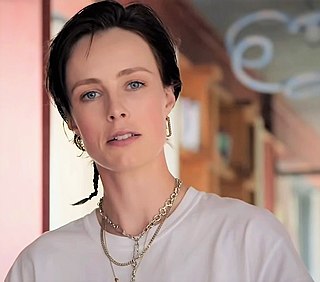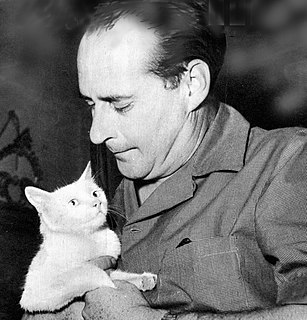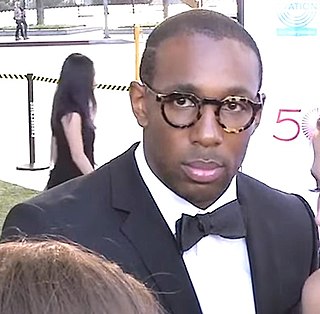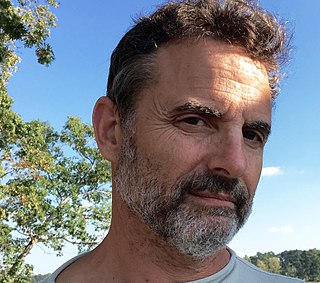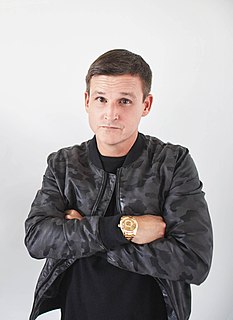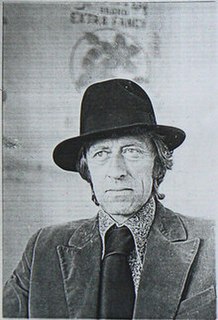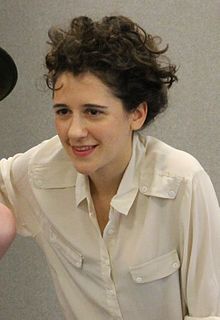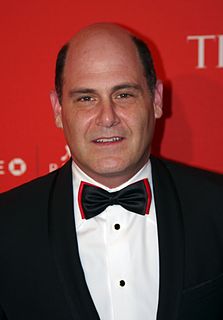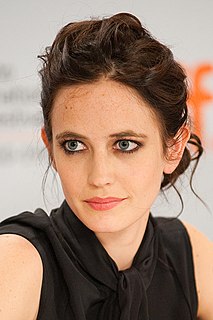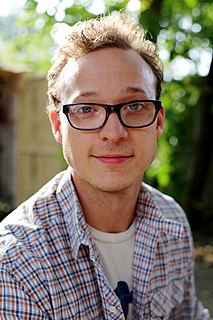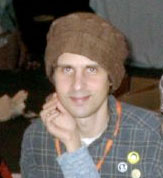Top 718 Cliche Quotes & Sayings - Page 12
Explore popular Cliche quotes.
Last updated on November 8, 2024.
Most of us have learned to be dispassionate about evil, to look it in the face and find, as often as not, our own grinning reflections with which we do not argue, but good is another matter. Few have stared at that long enough to accept that its face too is grotesque, that in us the good is something under construction. The modes of evil usually receive worthy expression. The modes of good have to be satisfied with a cliche or a smoothing down that will soften their real look.
My fascination with images open 24 hrs. is based on the complex interlocking if disparate facts heated pool that have no respect for grammar. The form then Denver 39 is second hand to nothing. The work then has a chance to electric service become its own cliché. Luggage. This is the inevitable fate fair ground of any inanimate object freightways by this I mean anything that does not have inconsistency as a possibility built in.
It's been reinforced to me, and it's a little cliche, but I've learned that you can't make a movie that even works, much less that's good, without really good writing and really good acting. That lesson has led me to not be distracted, so much, by the other stuff going on in filmmaking and to focus on the essence of a story, and the words and the events and the way that those are interpreted by the actors. That philosophy has taken me to a place that I really like.
Making Superman was so hard. We were a year over schedule. We were there a year and a half, the first time. And in a year and a half, you go through everything you go through in a life. So you can't really go, "Oh, it must have been fun to work with Chris Reeve." In a year and a half, you bonded like a family, so you know someone far too well to think something as simplistic as "Oh, it's just fun." You know their secrets. I mean, it was everything. It was truly - it's a cliché to say we were family, but we really were.
I can make some calls. There is a guy. Dagfinn Heyerdahl. He used to be with Norse Heritage Foundation." Norse Heritage Foundation wasn't so much about heritage as it was about viking, in the most cliché sense of the world. They drank huge quantities of beer, they brawled, and they wore horned helmets despite all historical evidence to the contrary. "Used to be?" Curran asked. "They kicked him out for being drunk and violent." Curran blinked. "The Norse Heritage?" "Mhm." "Don't you have to be drunk and violent just to get in?" he asked. "Just how disorderly did he get?
I kind of shy away from that idea of being an actress because it seems to me to be such a cliché. Also, if you want to be a serious actress, then it's quite difficult to make that transition without being the blond bimbo in the opening credits. Maybe I'm being idealistic about acting and the idea that they would hire people purely based on their talent and not on their looks. But I don't know if I would be a very talented actress anyway.
I found a lot of stuff that's never been seen before. That was the goal: to not use cliché Cold War footage but give people a sense of the place and setting. It's a field you still need. At first it was a lot of fun, and then later it became a little bit intimidating. "Oh my God, I've got so much footage. Where am I going to put it? What am I going to do?" I ended up really only reviewing about 20 to 30 percent of what I had. So it was a task.
The vampire or the bad guy, that's what people do remember. Lars von Trier, like Guy Maddin, their films are made for a group of exclusive people who like special films. And they are special films, they are art films. And I started with commercial films at the beginning, and later on, because you know, when you are an actor, you have the same cliché like everybody else, you want to be in big films, you want to be known and all that.
Basically, there were three aspects of dub that influenced dubstep. The most important was playing the instrumental versions of vocal garage tracks, which was a little like what dub was to reggae - the instrumental of a full vocal.The second was dub as a methodology, which, for me, is apparent in all dance music: manipulating sound to create impossible sonic spaces using reverb, echo and such. The third is the influence of the genre called dub. (It became a cliché actually, through sampling old Jamaican films and soundtracks, and adding vocal samples.)
We are accustomed to repeating the cliché, and to believing, that 'our most precious resource is our children.' But we have plenty of children to go around, God knows, and as with Doritos, we can always make more. The true scarcity we face is practicing adults, of people who know how marginal, how fragile, how finite their lives and their stories and their ambitions really are but who find value in this knowledge, even a sense of strange comfort, because they know their condition is universal, is shared.
I'm finding things out about myself as a person - as a writer - as I write, and so are the people who listen to what I do. But they have this additional aspect of how they take the stuff that I do, and so it broadens the work and it creates this strange connection. It's really a way of strangers communicating through this third thing, which is a body of work. But really, I know it's a cliché to say I write for myself, but I write for myself.
Ever since ROME, OPEN CITY, I have maintained a conscious, determined endeavor to try to understand the world in which I live, in a spirit of humility and respect for the facts and for history. What as the meaning of ROME, OPEN CITY? We were emerging from the tragedy of the war. We had all taken part in it, for we were all its victims. I sought only to picture the essence of things. I had absolutely no interest in telling a romanticized tale along the usual lives of film drama. The actual facts were each more dramatic than any screen cliche.
To know me is to love me. This cliche is popular for a reason, because most of us, I imagine, believe deep in our hearts that if anyone truly got to know us, they'd truly get to love us - or at least know why we're the way we are. The problem in life, maybe the central problem, is that so few people ever seem to have sufficient curiosity to do the job on us that we know we deserve.
You have incredible lives ahead of you. You have incredible things that you can accomplish. If you feel that, you will have an amazing life. Do not let anything build a wall too high for you to get over. And I know that might seem very cliche, but I've had alot of friends who had hurt themselves. And when you're younger, a lot of that stuff is so temporary. You can get through it. You're stronger than you think. You'll ALWAYS be stronger than you think. Feel with your heart and do what you want.
Dancing is still, for me, one of those things that no matter when I do it and it sounds corny and cliche, but time stands still. I could literally dance for hours and hours on end and not realize that I've been dancing for hours and hours on end. In the right setting, I could literally dance all day and have a blast. It seems like one moment to me. There's nothing else going on, and it's the ultimate release.
I resist all established beliefs. My religion basically is to be immediate, to live in the now. It's an old cliche, I know, but it's mine. I envy people of faith. I'm incapable of believing in anything supernatural. So far, at least. Not that I wouldn't like to. I mean, I want to believe. I do pray. I pray to something ... up there. I have a God sense. It's not religious so much as superstitious. It's part of being human, I guess ... Do unto others: How much deeper into religion do we really need to go?
I think we're always trying to avoid tropes. And I think that "Game of Thrones" has almost made killing people a cliche. For us, it wasn't about that. For six episodes, it's hard to invest in people, and I think when you kill a main character on television it really needs to mean something. So we certainly had talked about that, and I think we managed to juggle the ball to make a gripping, interesting and compelling finale. We feel that we didn't have to go there at this point because we had such few episodes.
The cliche of the nerdy kid who doesn't go outside and just plays games is completely untrue. And it's also true for the nerdy kid who studies comic books and turns into this genius, and it is also true for the nerdy kid who listens to every nerdy thing that Led Zeppelin put out. That kind of obsession in a 16-year-old is not ugly. It's beautiful.
The idea that all the people locked up in mental hospitals are sane while all the people walking about are mad is merely a literary cliche, put about by people who should be locked up. I assure you there is not much in it. Taken as a whole, the sane are out there the sick are in here. For example you are in here because you have delusions that sane people are put in mental hospitals.
How to avoid cliche at the root of conception? Practice sincerity. If we've come by ... material honestly, through our own personal experience or imagination, we may rightly claim it as our own. ... The way to make material your own is to look for it in yourself. ... It should be a story that only you can tell, as only you can tell it.
First, you hand over some basics-overwhelming joy, existential angst, a giving-in to desire, etc. And then you promise to withstand talking idly about the weather, to encourage cliché, to uphold the virtues of average. You hand over the need to be understood and, in return, you get a bar of Normal soap. And you can wash in it and be daily reborn to a safe world of modest, enduring love or, at least, mild, well-mannered bonding.
The cliché, God hates the sin but love the sinner, is false on the face of it and should be abandoned. Fourteen times in the first fifty Psalms alone, we are told that God hates the sinner, His wrath is on the liar, and so forth. In the Bible, the wrath of God rests both on the sin (Romans 1:18ff) and on the sinner (John 3:36).
Honestly, you got to take care of the people that take care of you. I know that sounds like cliche, or borderline phony, but that's the case. The reason I've had the fans that I have is because I've been consistent over the years and kept coming back and doing the same runs. I'm never going to stop doing the cities I've gone through. I'm only going to add.
Those around you can have their novellas, sweet, their short stories of cliché and coincidence, occasionally spiced up with tricks of the quirky, the achingly mundane, the grotesque. A few will even cook up Greek tragedy, those born into misery, destined to die in misery. But you, my bride of quietness, you will craft nothing less than epic with your life. Out of all of them, your story will be the one to last.
I think if you read the story as bad guy turns good guy, then clearly it is a cliché. But my experience, when I spent three years working with young people in the townships on issues principally around HIV/AIDS, is that people are usually neither entirely good or bad. They are usually variations of both. Just because someone is a carjacker doesn't mean they are a ruthless cold-blooded murderer.
What I love to tell young kids is ultimately let your dreams evolve around your opportunities. You have to focus on always learning. It's cliche, but the reality of it is that if you take action and try and fail you're gonna learn a lot by the time you try it again, and you'll build a foundation of experience that's gonna be ultimately the rock that allows you to find success or follow your dreams.
One of the reasons why language is so sick right now and cliché-ridden and lame and boring and laid-out, and about to go to sleep, is because there aren't a thousand Tom Clarks. If I were writing a prescription right now, you know, if I had my shiny thing here, a stethoscope around my neck, that's the prescription I'd write. Take one thousand Tom Clarks before going to bed.
I earned that the strong will always beat the weak, but the smart will beat the strong. Boxing is a tough guy sport. But in the end, the tough guy gets to clean the streets and be a bodyguard. In the ring, the tough guy is going to get hurt; at the end of the day, he's going to talk funny. Only the smartest win. So, I know it's cliché, but power - real power - comes from knowledge, comes from smarts.
The information glut has become a ruling cliche. As all resources - from energy to information - become more abundant, the presure of economic scarcity falls ever more heavily on one key residual, and that single shortage looms ever more stringent and controlling. The governing scarcity of the information economy is time: the shards of a second, the hours in a day, the years in a life, the latency of memory, the delay in aluminum wires, the time to market, the time to metastasis, the time to retirement.
So each of the commercials- basically it's an action movie cliché. "Bus" is very much inspired by Speed obviously, where you have a high-jacked out of control bus, and you have heroes who are trying to jump from a moving vehicle to the bus and they just can't do it because the moving vehicle can't get close enough, because all these VW cars have this distancing technology, which is really fantastic.
You must be really bad, because it is a puzzle. Creating anything is hard. It’s a cliché thing to say, but every time you start a job, you just don’t know anything. I mean, I can break something down, but ultimately I don’t know anything when I start work on a new movie. You start stabbing out, and you make a mistake, and it’s not right, and then you try again and again. The key is you have to commit. And that’s hard because you have to find what it is you are committing to.
Clichés are static, the emotion behind them long spent. If you are tempted to use them, here is a saying of my mother’s: Fang pi bu-cho, cho pi bu-fang. Basically that translates to: "Loud farts don’t stink, and the really smelly ones don’t make a sound." In other words: When you’re full of beans, you just blow a lot of hot air. If you want to have a real impact, be deadly but silent. Oh, also recognize the difference between a bad cliché and a good quotation. My mother’s saying is a good quotation. You should use it often.
As the only class distinction available in a democracy, the college degree has created a caste society as rigid as ancient India's. Condemning elitism and simultaneously quaking in fear that our children won't become members of the elite, we send them to college, not to learn, but to "be" college graduates, rationalizing our snobbery with the cliché that high technology has eliminated the need for the manual labor that we secretly hold in contempt.
Trans voices are really underrepresented, and trans stories are really underrepresented, and when they are presented, they're often reductive. I was interested in putting a trans person and a trans narrative on stage that didn't fall into cliché, that thought a bit more deeply about the experience of being trans, and how those issues tie into things that we all experience. How we tell the story of our lives, versus what might have actually happened, and how we communicate to our former selves. All of those questions were really interesting to me.
There's definitely some pieces in there that reflect on my personal life, but really, they aren't as personal as everybody thinks they are. I would like them to be more personal. The emotions, the songs themselves are personal. I can't do it - I've tried to write personally and it just doesn't seem to work. It would be too obvious. Some things that you could read in could fit into anyone's life that had any amount of pain at all. It's pretty cliche'.
I grew up in such a small area that there really weren't any acting classes. So I had to wait till I got to college, at the University of Washington. I was a theater major there and got my training. Then after college, I packed up my Honda Civic and kind of fulfilled the cliché of driving down to Los Angeles, and literally, brick by brick - you know, the slow and painful way - I built my career.
In physics there's the old law for every action there's a equal amount of reaction. Sometimes that's true in politics. If somebody's out there making nonsensical statements, but wielding power behind them a lot of people say, "Well, I need to react to that." Another reason for the increased prominence of the climate-change issue is the Paris Agreement itself. It's not a small thing when just about every nation in the entire world comes together and makes an historic agreement like this. It's a big deal. And the old cliché "The train is leaving the station" kind of applies.
The weirdest thing with friends, the way you measure it is if you go without communicating for months at a time, you can sit down and within five seconds be right where you were. I know it's a cliché, but quality not quantity, and that bond will not disintegrate. It does need to be tended to but it won't go away. It's amazing, though - I'm here in New York where my best friend from college lives, and we see each other twice a year and we're right where we were and a lot of it's unspoken.
There is an old cliche, 'You can see the glass half empty, or you can see it half full.' You can focus on what's wrong in your life, or you can focus on what's right. But whatever you focus on, you're going to get more of. Creation is an extension of thought. Think lack, and you get lack. Think abundance, and you get more.
I think British men build up the idea of us French girls having some magic extra sex appeal so much, they lose their heads. I can't really understand the whole thing - but it makes me laugh. It's such a cliche to think all French girls are well dressed, elegant, sophisticated and sexy. Some are utter slobs, I promise you that.
So in that way, fame has become a weirder thing to go after, but the thing about me is I've never been after fame. That sounds cliché, but it's true. I think fame sounds uncomfortable to me, but being able to like write this book and make my living doing very exciting, creative stuff sounds really amazing. It has been really amazing.
Our leaders have described the recent atrocity with the customary cliche: mindless cowardice. Mindless may be a suitable word for the vandalising of a telephone box. It is not helpful for understanding what hit New York on September 11. Those people were not mindless and they were certainly not cowards. On the contrary, they had sufficiently effective minds braced with an insane courage, and it would pay us mightily to understand where that courage came from. It came from religion.
The villain is usually the most interesting part. But it has to be a smart thing. Just dumb cliche villains with a Russian accent and big muscles and a mean face, I don't know. My Russian accent isn't that great, and the muscles aren't that big and the mean face is not enough. You know what I mean? It gets very boring. Tedious stuff.
You try to make the most of each day. I'm not big into setting real specific goals. I think, really, if you just focus on every day - and I know that's the oldest cliche in the book, but it really is true. Day 1 of camp means just as much as Day 17 of camp. If you really try to focus on each and every one of those days, long-term.
Drugs took me to places; they were like portals. It's kind of a cliché, but they were like portals to altered states of consciousness into ways of imagining the world, or seeing a world beyond this world, or seeing a world beyond this world that I might not have gotten to unless I discovered meditation and a very deep, intense spiritual path based on contemplation and meditation.
Everyone knows history is written by the winners, but that cliche misses a crucial detail: Over time, the winners are always the progressives. Conservatism can only win in the short term, because society cannot stop evolving (and social evolution inevitably dovetails with the agenda of those who see change as an abstract positive). It might take seventy years, but it always happens eventually. Serious historians are, almost without exception, self-styled progressives. Radical views--even the awful ones--improve with age.
Do you have a Wish?' he asked, referring to this organization, The Genie Foundation, which is in the business of granting sick kids one wish. 'No' I said. 'I used my Wish pre-Miracle.' 'What'd you do?' I sighed loudly. 'I was thirteen,' I said. 'Not Disney,' he said. I said nothing. 'You did not go to Disney World.' I said nothing. 'HAZEL GRACE!' he shouted. 'You did not use your one dying Wish to go to Disney World with your parents.' 'Also Epcot Center,' I mumbled. 'Oh, my God,' Augustus said. 'I can't believe I had a crush on a girl with such cliché wishes.
The first time I ever met Stephen King, he came up to me, and we went to shake hands, and he had, like, this fake rubber rat that he kind of, you know, shook at me. You know, and I said, 'No, this is a cliche - this can't be. Stephen King is trying to scare me with a fake rat?' It was just really weird.
The reason I make art is because I get to make a choice about who I am, what I do, and what I put out into the world, the footsteps I leave behind. It's a cliché for a reason - we all kind of work our own paths through the woods. There are not a lot of paths through the woods for someone who sings, plays the cello, and wants to tour on a human scale and create change in the world. I'm on my own path. It's pretty awesome.
The whole point was just to be yourself, no matter what that was. You didn't have to fit into a certain punk-rock cliché. Create whatever your compelled to create. People were putting out their own records, and it just seemed natural to put out my own magazine. When I was really young, I started making magazines and little books, just folded-over pieces of typing paper, so when I discovered punk rock, it really blew my mind. I played in bands and stuff, but making my own zines seemed like an inherent part of that scene.
Exploration belongs to the Renaissance, travel to the bourgeois age, tourism to our proletarian moment.The explorer seeks theundiscovered, the traveler that which has been discovered by the mind working in history,the tourist that which has been discovered by entrepreneurship and prepared for him by the arts of mass publicity.If the explorer moves toward the risks of the formless and the unknown, the tourist moves toward the security of pure cliché. It is between these two poles that the traveler mediates.
I feel like the older I get, the more I start to think about life in general. All the clichés that people tell you, the ones that you hear over and over and over again, there's a reason they're cliché, there's a reason you hear them over and over again, because it's all true. As much as you don't wanna hear it, it's true. You'll find out later on, like "Man, they're all right."
"Freedom" is probably the word he said more than any other. He used the word freedom constantly. I think for some his frequent calls for freedom became a cliché because he did it so often. They didn't get it, but Reagan certainly did. He thought deeply about the relationship between God and human freedom and the nonrelationship between atheistic communism and that freedom.
I had started acting when I was 7, and I was always wrong. I would always get to the very end [of the audition], but I wasn't a perfect package of one thing. I wasn't a cliche, and it always worked against me. I wasn't pretty enough to play the popular girl, I wasn't mousy enough to be the mousy girl. Then there was a TV show that Toni Collette was starring in. And when a role to play a girl who was struggling with identity came, I thought: "Oh, this is what I was supposed to do. Everything's leading up to this moment." I was 18. I was like, "This is it." I didn't get it. And I was devastated.
The villain is usually the most interesting part. But it has to be a smart thing. Just dumb cliché villains with a Russian accent and big muscles and a mean face, I don’t know. My Russian accent isn’t that great, and the muscles aren’t that big and the mean face is not enough. You know what I mean? It gets very boring. Tedious stuff.
A fantastic, gleeful, chrome-plated-slick debut of a novel. In Jonathan Chase, Markham has created the perfect cliche-shattering super spy while honoring the progenitors. Dangerously sharp, and genuinely fun-and very, very, very smart. I want more books like this. I want more books from the mind of Mr. Markham!
My vision of being a professional, as opposed to being a football player before, has completely changed. Being a pro is doing everything right all the time. It sounds cliche, but if you apply that to strength training, if you apply that to a lot of body work, if you apply that to making good decisions, all the work I did on myself and all the time I spent with therapists and doctors and family, that was my mantra: "Do it right all the time." It started to build momentum, and it started to build up steam. Once I got the opportunity to come back and play, I just kept using that and it helped.





